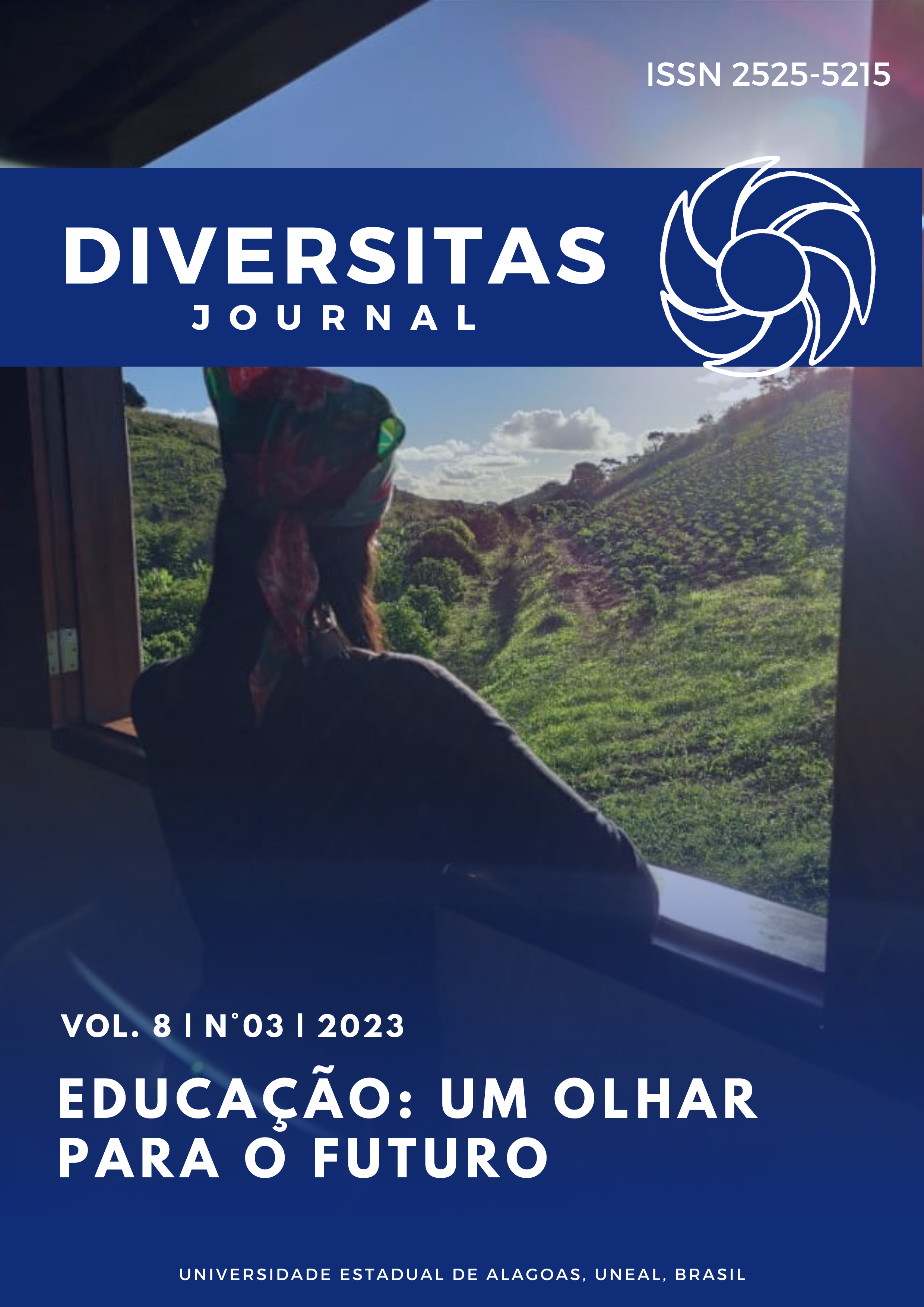The Making of Teaching Profession as a First Choice
DOI:
https://doi.org/10.48017/dj.v8i3.2696Palabras clave:
percepción de los estudiantes, experiencia de vida, vocaciónResumen
In the global educational scene, the teaching profession has long been hailed as the noblest profession. It is through educators; that the citizenry is currently imbued with skills and knowledge that they need to maximize their capacities to their full potential. Thus, the researchers saw that it is pivotal to know the perception of the pre-service teachers on the teaching profession as a first choice, to provide baseline data that can unveil factors that influence the making and unmaking of the teaching profession. Using the descriptive research method, the data from a survey conducted among the 1st and 2nd-year students at the College of Education was gathered and interpreted. Subsequent to the t-test and Pearson correlation computation, the study uncovered that there is no significant difference in the perception of the 1st year respondents against the 2nd year respondents. Likewise, there is a moderately positive correlation in the respondents’ perception of teaching vis-à-vis teaching as a first choice and experience with their teachers.
Métricas
Citas
Stark, K. (2019, June 11). By the end of my third year, I was in therapy. we must start taking teachers' emotional health seriously. EdPost. Retrieved March 14, 2022, from https://rb.gy/xhif
Donaldson, G., Grahovac, M., Kirandžiska, S., Jelić, M., Milić, S., Miljević, G., Jusović, admila R., Trikić, Z., Velkovski, Z., Vidović, V. V. V., & Vranješević, J., TEACHING PROFESSION FOR THE 21 ST CENTURY (2013). Belgrade; Centre for Education Policy.
Wood, J. (2018, December 19). This is where teachers are most (and least) respected. World Economic Forum. Retrieved March 14, 2022, from https://www.weforum.org/agenda/2018/12/teachers-where-most-and-least-respected/
European Commission. (2004). Common European Principles for Teacher1 Competences and Qualifications. Brussel, Belgum.
Moses, I., Admiraal, W., Berry, A., & Saab, N. (2019). Student-teachers’ commitment to teaching and intentions to enter the teaching profession in Tanzania. South African Journal of Education, 39(1), 1–15. https://doi.org/10.15700/saje.v39n1a1485
Walinga, J., & Stangor, C. (2019, June 28). 3.5 psychologists use descriptive, Correlational, and experimental research designs to understand behaviour. Introduction to Psychology. Retrieved March 14, 2022, from https://rb.gy/tpnrsz
McCombes, S. (2022, October 10). Descriptive Research | Definition, Types, Methods & Examples. Scribbr. https://www.scribbr.com/methodology/descriptive-research/
Khizar, U., Shafique, M., Iqbal, S., Abid, K., & Baloch, U. (2021). Multicultural Education, 7(4). https://doi.org/10.5281/zenodo.4681321
Nettleton, D. F. (2014, December). Chapter 6. selection of variables and factor derivation. Researchgate. Retrieved March 14, 2022, from https://www.researchgate.net/publication/301928757_Chapter_6_Selection_of_Variables_and_Factor_Derivation
What Students Think: Pearson Announces Results of Largest National Student Survey. CISION PRWeb. (2008, November 14). Retrieved March 14, 2022, from https://www.prweb.com/releases/2008/11/prweb1602932.htm
Khizar, U., Shafique, M., Iqbal, S., Abid, K., & Baloch, U. (2021). A Qualitative Study Of Attributes Of A Good Teacher As Perceived By Pupils And Principals. Multicultural Education, 7(4). https://doi.org/10.5281/zenodo.4681321
Lumpkin, A. (2008). Teachers as Role Models: Teaching Character and Moral Virtues. Journal of Physical Education, Recreation & Dance, 79(2), 45–49.
Balyer, A., & Özcan, K. (2014). Choosing teaching profession as a career: Students’ reasons. International Education Studies, 7(5). https://doi.org/10.5539/ies.v7n5p104
Kyriacou, C., & Coulthard, M. (2000). Undergraduates' views of teaching as a career choice. Journal of Education for Teaching, 26(2), 117–126. https://doi.org/10.1080/02607470050127036
Professional Regulation Commission. (1998). Code of Ethics for Professional Teachers. Manila.
Tamášová, V. (2015). Professional and career development of vocational subject teachers as a trend in the lifelong learning of teachers. Acta Technologica Dubnicae, 5(1), 1–20. https://doi.org/10.1515/atd-2015-0029
Blaylock, M., Churches, R., Gowers, F., Mackenzie, N., McCauley, D., & Pye, M. (2016). Inspiring teachers: how teachers inspire learners. Education Development Trust. Retrieved March 14, 2022, from https://www.educationdevelopmenttrust.com/
Navarro, R. (2018). Continuing Professional Development: Law and Reality. Manila; Philippine Schools Overseas.
Philippine Regulation Commission. (2017). Operational Guidelines in the Implementation of Republic Act (R.A.) 10912, otherwise known as "Continuing Professional Development (CPD) Act of 2016 for Professional Teachers. Manila.
Owusu, D. (2021). “Physically stressful” since issues on the teaching profession being one of the most stressful jobs compared to other occupations (dissertation). Sam Jonah Library, Cape Coast.
Rabago-Mingoa, T. (2017, June). Filipino teachers’ stress levels and coping strategies. Manila; De La Salle University.
Cox, J. (2020, January 28). The duties and objectives of elementary school teachers. ThoughtCo. Retrieved March 14, 2022, from https://www.thoughtco.com/what-is-the-role-of-a-teacher-2081511
Descargas
Publicado
Cómo citar
Número
Sección
Licencia
Derechos de autor 2023 Nilmar Moreno, Sara Jane Cruz, Julius Meneses

Esta obra está bajo una licencia internacional Creative Commons Atribución 4.0.
O periodico Diversitas Journal expressa que os artigos são de unica responsabilidade dos Autores, conhecedores da legislação Brasileira e internacional. Os artigos são revisados pelos pares e devem ter o cuidado de avisar da possível incidencia de plagiarismo. Contudo o plagio é uma ação incontestavel dos autores. A Diversitas Journal não publicará artigos com indicios de Plagiarismos. Artigos com plagios serão tratados em conformidade com os procedimentos de plagiarismo COPE.
A violação dos direitos autorais constitui crime, previsto no artigo 184, do Código Penal Brasileiro:
“Art. 184 Violar direitos de autor e os que lhe são conexos: Pena – detenção, de 3 (três) meses a 1 (um) ano, ou multa. § 1o Se a violação consistir em reprodução total ou parcial, com intuito de lucro direto ou indireto, por qualquer meio ou processo, de obra intelectual, interpretação, execução ou fonograma, sem autorização expressa do autor, do artista intérprete ou executante, do produtor, conforme o caso, ou de quem os represente: Pena – reclusão, de 2 (dois) a 4 (quatro) anos, e multa.”


















